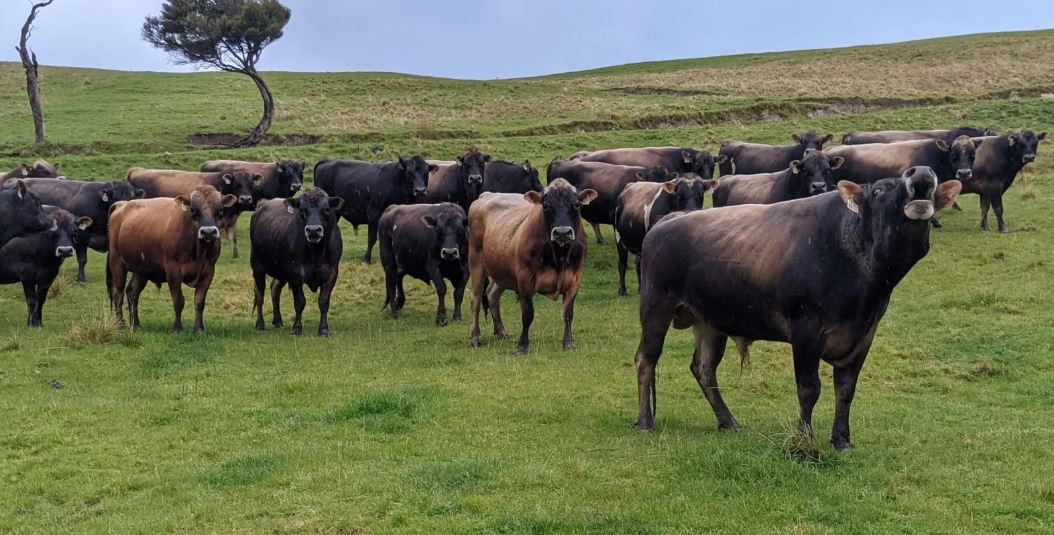Managing service bulls well is the foundation of a successful breeding season. At New Zealand Grazing Company, we take pride in the care and preparation of our Jersey bull team, ensuring they are fit, healthy, and ready for the important job ahead. Good bull management not only protects fertility but also maximises conception rates and keeps both animals and people safe.
Our Service Manager, Richard Hammond, has years of hands-on experience working with our Jersey bull team and shares valuable tips below to help farmers get the best results during mating.
Our Jersey Bull Team
Here at New Zealand Grazing Company we run a team of Jersey service bulls primarily for use over the heifers grazing in our system. The management of these bulls during the “off season” is critical to ensuring good quality and condition of the bulls for the breeding season.
In the two to three months before the breeding season is when we not only observe the bulls are in good shape to be put out for mating, but also carry out all the health tests and vaccinations, ensuring they have the optimal health standards for the upcoming job at hand.
Our Jersey bulls have joined our team as weaners coming straight from the Jersey breeder farm to our bull growers under a specialist Jersey bull management program.
These bulls are weighed regularly throughout their lifetime and the “off season” to ensure appropriate growth rates are being achieved and resulting in a good body condition score.
The reason it is so important that a bull have a good body condition is that during the mating season a bull will commonly lose weight, due to the high physical activity during this time.
Our bull team is predominantly pasture grazed on rolling hill country giving good natural fitness. This results in our bulls adapting well to the high workload, especially at the start of the breeding season.
Bulls in good body condition have reserves to draw on while they are working hard, avoiding energy deficits that may impact on fertility and functionality.
Bull Management During Mating Season
Richard explains it is most important that you observe what is happening with mating activity. Observation cannot be over-emphasised!
What Are You Looking For?
- The correct bulls (individuals) are actually in with the mob, they have not gone somewhere else and you do not have unexpected visitors. Always use a minimum of two bulls per mob.
- Observe your bulls daily to ensure they are properly performing. Checking that they are not lame and do not demonstrate other injury or infection. Immediately remove bulls that are unable to serve properly and replace them with more capable bulls. It is important you do check your bulls on a daily basis as if a bull is to go lame or get sick during the mating period they will need to be replaced promptly.
- The bulls are taking an active interest in “bulling” heifers. If you are present for only a few minutes every couple of days, you may get a wrong impression on this.
- What you cannot see is the sperm fertility – but don’t worry about that! It is a rare Jersey bull indeed that is not producing vast amounts of quality sperm daily – concentrate on seeing that he is delivering what he has in the right place at the right time – because this is what you can see and manage.
- Make a note when the end of the first three weeks is due and check that the “bulling” activity is diminishing to indicate successful conception rates.
- Do not mate heifers in mobs bigger than 100. A mob size of 50 is a great size mob for mating.
- Bulls can be dangerous – take care of yours and your staff’s personal safety.
Final Thoughts
Strong service bull management is an investment in breeding success. By ensuring bulls are well-conditioned, carefully monitored, and supported with the right health and handling practices, farmers set their heifers – and their farming systems – up for higher conception rates and a smoother mating season.
At New Zealand Grazing Company, we know that preparation and observation make all the difference. With experienced guidance and well-managed Jersey bulls, you can be confident your heifers are in capable hands.

